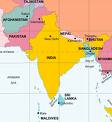In his January editorial piece in Kisan Ki Awaaz (National Magazine of the Farmer’s Voice), Krishan Bir Chaudhary claims there is a conscious attempt by officialdom in India to remove farmers from farming.
If his claim were to be valid, it would come as little surprise when we consider that, due to the restructuring of agriculture in favour of Western agribusiness, over 250,000 farmers have committed suicide in India since 1997. If there is such as ploy, the strategy would appear to be going according to plan. And that’s not even factoring in the unconstitutional land grabs that have booted farmers off their lands to make way for nuclear power plants, various ‘developments’ or ‘special economic zones’.
Chaudhary would like to know how the government would reemploy 148 million farming households, and states there are already 93 million urban slum dwellers in India. The question posed by Chaudhary is: does India need another 740 million begging on the streets?
With economic growth apparently slowing from around eight to nine percent annually to estimates that vary between five and six percent, just where are the jobs going to come from to cater for India’s increasing population, never mind millions of former agricultural workers who, if Chaudhary is correct, would seem destined to be thrown onto a jobless scrapheap? There are only so many cyber parks to be built, macjobs to be had and so much cheap labour outsourcing to be done.
Looking at policies pertaining to Indian agriculture and the plight of farmers, it would be easy to conclude that farmers in India represent some kind of ‘problem’. A problem to be removed from the land and a problem to be dealt with once removed. Since when did food producers, the genuine wealth producers, become a ‘problem’? The answer is when Western agribusiness was given the green light to take power away from farmers and uproot traditional agriculture in India and recast it in its own profiteering, corporate-controlled image.
This is the moral bankruptcy and mass deception that lies behind mainstream notions of ‘development’, which to all intents and purposes means profits and headline grabbing surges on the Dow Jones or SENSEX – not human or social development.
Chaudhary wonders whether the government taking its orders from American and European MNCs. Of course, many of us have assumed this to be the case for a number of years already, particularly when we uncovered the links between the Monsanto/Syngenta/Walmart-backed Knowledge Agreemente on Agriculture and the US sanctioning and backing of the opening up of India’s nuclear sector to foreign interests.
And we have also been fully aware of how Big Agra and its ugly sister Big Pharma work hand in glove to make massive profits based on bogus claims and bogus science. The Ministry of Health and Family Welfare in India has been pushing birth control and vaccination for the last two decades. Chaudhary asks why is it pushing vaccines when doctors have warned they are causing autism in children?
But this is how Big Pharma makes its money. There’s no future for that industry if improvements in hygiene and sanitation and providing nutritious food are seriously promoted. There’s not much of a future in genuine human and social development for Big Pharma. While Chaudhary argues that such food alone can reduce virus induced infection, it seems that India wants to follow the Western model of ‘development: big profits, bad food, bad health, more pharmaceutical drugs and more chemical inputs into agriculture.
Chaudhary asks another highly pertinent question:
“Should big multinational pharamaceutical firms be allowed to play with the lives of millions of Indians?”
He argues that India’s thousands of years old civilisation is under threat. Industrial developments built with public money and strategic assets, such as energy sources, ports, airports and seeds and infrastructure support for agriculture are being sold off. And how is this all justified? By reference to GDP growth – a single, narrow definition of ‘development’ – a notion of development hijacked by economists and their secular theology which masquerades as economic ‘theory’.
In any case, just like the racketeering capitalism on offer from the transnational corporations now descending on India, that dubious measurement in terms of India’s GDP growth has hit the buffers too.


